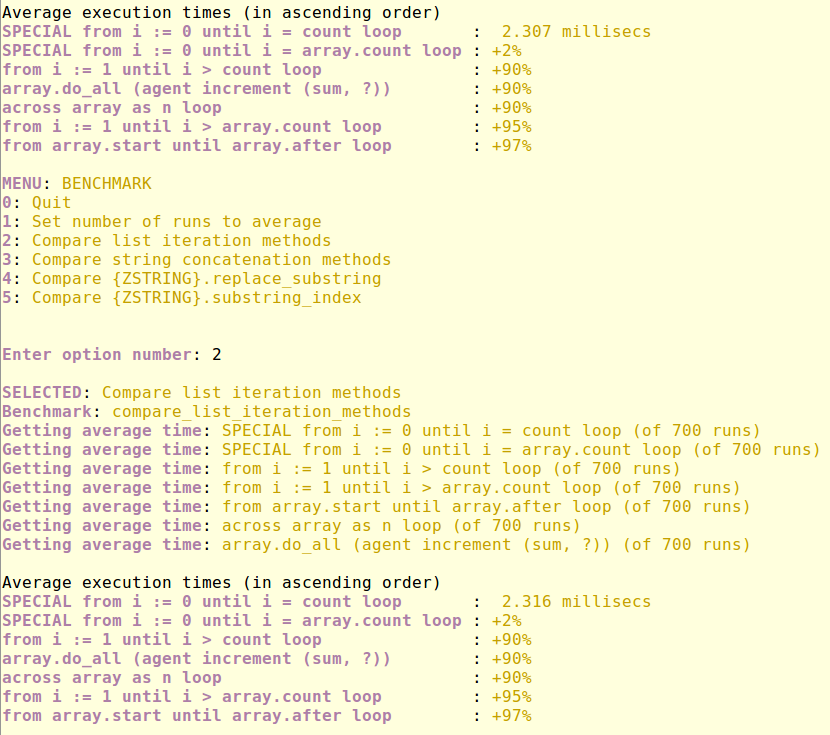Benchmarking Five List Iteration Methods
Introduction
The most commonly used list is type ARRAYED_LIST. When optimising your Eiffel code it is useful understand the performance implications of using different methods to iterate over a list. This article reports on the benchmarks for five types of iteration method, and also measures the difference that caching the array count as a local variable makes.
Results Screenshot
The screenshot shows two tryies of the iteration comparison from the menu shell. In relative terms the results are identical. The benchmarking class EL_BENCHMARK_ROUTINE_TABLE displays the fastest time in millisecs. The remaining results are presented in ascending order of execution time relative to the first result.

Runtime Conditions
EiffelStudio version: 16 (16.05.9.8969 GPL Edition - linux-x86-64)
C Compiler: gcc version 4.8.4
Exe type: finalized exe
Assertions: off
Code inlining: level 2
OS: Linux Mint 17.1
CPU: Intel Core i7-3615QM CPU @ 2.30GHz
Benchmark Conditions
The task of the loop is to add all the numbers from one to a million. Each routine benchmark is the average of 700 loop runs (apply_count) as expressed in this benchmarking routines. (Note a full garbage collect is carried out after each benchmark).
Benchmark Code
The code for these benchmarks can be inspected in the following classes. These classes are designed to make it easy to do quick performance comparisons for different styles of Eiffel code.
Iteration Routines
These are the benchmarks in order of efficiency (fastest first)
1st. Cached SPECIAL iteration (2.3 ms)
Not surprisingly the fastest way to iterate over an arrayed list is to iterate over the inner area array of type SPECIAL [INTEGER] while caching the array count for the until condition with a local variable (local_count = True). The average time to execute is 2.3 millisecs. It is nearly twice as fast as all the other iteration types.
2nd. SPECIAL iteration (+2%)
This benchmark uses the same method as in the 1st but does not cache the array count. This adds 2% to the execution time.
3rd. do_all & across & i_th (+90%)
The following 3 iteration methods tie for 3rd place.
Iterating using the {ARRAYED_LIST}.i_th function if you cache the array count to a local variable (local_count = True).
4th. Uncached 'i_th' (+95%)
This uses routine iterate_from_i_until_i_gt_count with local_count = False. This mean the until condition has to call array.count on each iteration.
5th. start until after (+97%)
In last position is the start until after loop which is consistently slower than the other methods.
